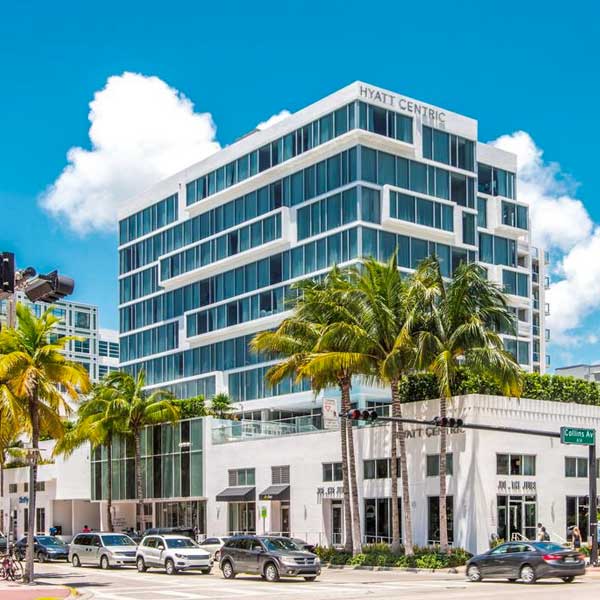examples of sincerely held religious belief covid vaccineexamples of sincerely held religious belief covid vaccine
A group of students at Creighton University in Nebraska filed suit last week over the Jesuit university's refusal to consider religious exemptions to its COVID-19 student vaccination requirement. As an ordained pastor of (Name of Church), I am writing to affirm (name of individual) sincerely held religious objection to any voluntary or mandatory Covid-19 vaccination. Employers are supposed to start out with the assumption that the employee's religious belief is sincere. In some . Trust and faith are often intertwined. Courts previously have said an "undue hardship" is created by an accommodation that has more than a de minimis (very small) cost or burden on the employer. Vaccines to me are unclean. National Catholic Register, September 2, 2021. . An employee who has a sincerely held religious belief that prevents them from being vaccinated against COVID-19 may request an accommodation by notifying a supervisor in their chain of command or their Human Resources office. TITLE VII PROTECTIONS & REQUIREMENTS TITLE VII Requires that employers provide reasonable accommodations to an employee once notified that their sincerely held religious belief, practice, or observance conflicts with a work requirement (here, testing and vaccination), unless providing the accommodation would create an undue hardship. "Religious beliefs typically concern the ultimate ideas about life, purpose, and death, humanity . Employers implementing mandatory Covid-19 vaccination programs must manage, and in some cases accommodate, exemption requests. 3. Recognizing an 'Undue Burden' For example, just because a particular church has encouraged its members to receive the COVID-19 vaccines, an individual member may hold a sincerely held religious belief to the contrary. The EEOC continues to advise that employers may mandate that employees be vaccinated for COVID-19, subject to reasonable accommodations for employees with disabilities or a sincerely held religious belief that precludes them from being vaccinated. Opponents may challenge vaccination requirements based on claims of religious liberty or under specific laws that would allow for a religious exemption from any COVID-19 vaccine mandates. Jewish people support vaccination, as one of the most important tenets of the religion is preserving life. Mandatory COVID-19 Vaccine Policies—General. Please describe below why your sincerely-held religious beliefs preclude you from receiving the COVID . "It can be a . Even if one has doubts about the "religious" status of the new Church of the Holy Weed, committed to . Wednesday, November 17, 2021. The mandated vaccine, with its numerous additives and its mechanism for altering my body, is the equivalent of a prohibited "unclean food" that causes harm to my conscience. One possible accommodation would be exemption from the vaccination requirement, although other accommodations are possible, as discussed below. Two Christian dental school students were finally granted religious exemptions from taking the COVID-19 vaccine after Liberty Counsel intervened on their behalf. People rally at a demonstration against COVID-19 vaccination mandates, Aug. 25, 2021, in New York. Last week, Norder, its president, said four workers had applied for religious exemptions. The vetting process is not uniform, Cope says cases . The University will grant exemption to the vaccine requirement when an individual's sincerely-held religious beliefs preclude vaccination. Companies, however, have a leg up on public-sector employers when it comes to dealing with religious challenges to vaccine mandates . Jewish people support vaccination, as one of the most important tenets of the religion is preserving life. Sharon Murza and Ashley Swanson, who are both enrolled at A.T. . But an individual's "sincerely held" religious belief does not have to be part of an organized-religion mandate to be considered a valid reason for exemption from getting the vaccine. "Sincerely held" religious beliefs are one way an individual can request an exemption from a COVID-19 vaccine mandate in Washington. And here is where the vaccine issue becomes even more complicated. The pandemic has stirred strong emotion, but when it comes to faith-based exceptions to workplace vaccine requirements, the key issue is a person's "sincerely held religious belief, practice . I am requesting a religious exemption from the vaccine, because as a Christian, it is my sincerely held belief, as based on the clear and explicit teaching of God's Inspired Word, the Holy Bible, that taking the COVID-19 vaccine would be a sin, and . . I am not opposed to vaccines in principle; however, it is my sincerely-held religious belief that abortion is immoral and that these vaccines are not morally justifiable, especially considering the extremely low mortality rate and rare instances of permanent complications from COVID-19 infections among those of military age. EEOC Publishes New Guidance Regarding Objections to COVID-19 Vaccines Based Upon Employee Religious Beliefs. Fetal cells are not present in the actual vaccines. This Form must be completed when applying for a religious exemption/accommodation from the COVID-19 vaccination or testing requirements for employment with Tax & Rev and the State of New Mexico. Therefore, vaccine participation must be voluntary and cannot be forced, as the Congregation for the Doctrine of the Faith, under the authority of Pope Francis, indicated last December. "An example that comes to mind is an employee who has a sincerely held religious belief but works at a nursing home, where people are at extremely high risk to exposure to COVID," Bates said. But what counts as a sincerely held religious belief in the eyes of the law can be complicated. Additionally, the checklist suggests that some requests may constitute valid sincerely held religious beliefs, including the following: The worker has explained/documented how the belief requires the worker not to be vaccinated. Protecting one's health is a mitzvah, or obligation, according to Chabad.org. Only 10% of Americans believe that getting a COVID-19 vaccine conflicts with their religious beliefs, and 59% of Americans say too many people are using religious beliefs . The whole point of "sincerely held religious belief," since at least the 1944 Ballard . . to COVID-19 vaccination and testing. Manuel Balce Ceneta/AP. The vaccine is made from aborted fetuses. When people apply for a religious exemption from a Covid-19 vaccine, . "Whether they're vaccinated or not, an undue hardship would be another reason why the employer could require a vaccination. But, like most rules, there are always a few exceptions. Whether or not a religious belief is sincerely held by an applicant or employee is rarely at issue in many types of Title VII religious claims. . 4 The sincerely held . The United States Conference of Bishops issued guidance in January reassuring Catholics they could in good conscience take a Covid-19 vaccine, saying abortion-derived cells were used to test the efficacy of the vaccine, not create it. Legal exemptions from mandatory vaccination include medical exemptions under the Americans with Disabilities Act and exemptions based on sincerely held religious beliefs pursuant to Title VII of the Civil Rights Act of 1964 (and equivalent state laws for both federal . Legal exemptions from mandatory vaccination include medical exemptions under the Americans with Disabilities Act and exemptions based on sincerely held religious beliefs pursuant to Title VII of the Civil Rights Act of 1964 (and equivalent state laws for both federal . Mario Tama/Getty Images The idea of evaluating sincerity is particularly thorny. A religious exemption to getting a COVID-19 vaccine is the argument that a person's own religion or beliefs exclude them from . A bona fide, sincerely held religious belief that conflicts with an employer policy requiring an employee to be vaccinated against COVID-19 must be accommodated in the absence of undue hardship. Praying . On October 25, 2021, the Equal Employment Opportunity . The Supreme Court in 1965 answered that question and stated that the test is "whether a given belief that is sincere and meaningful occupies a place in the life of its possessor parallel to that filled by the orthodox belief in God." 3 Courts have further defined a religious belief to be a belief that is sincerely held. Staver said his organization was flooded with calls after the Department of Veterans Affairs became the first federal agency to require certain employees be vaccinated against COVID-19. The EEOC guidance includes: [T]he employer should ordinarily assume that an employee's request for religious accommodation is based on a sincerely held . Many private employers issued comprehensive vaccination mandates, including in the commercial real estate business, such as Related Companies, principal developer of Hudson Yards, and the Durst . Religious Belief Objection. What are religious exemptions to getting the COVID-19 vaccine? For example, a few months ago, Qualtrics published a study showing about 44% of workers surveyed stated that they would consider leaving their jobs if they were forced to get Covid vaccine shots. Confusion bolsters the argument by many that we don't know enough about vaccines to demand that people take them, which is not true. Individuals who demonstrate they meet the requirements for an exemption . Where an employee's objection to receiving the COVID-19 vaccine is not rooted in a "sincerely held religious belief," no accommodation must be made and the employer is free to enforce the mandatory vaccination policy. Title VII requires an employer to accommodate an employee's sincerely held religious belief, practice or observance, unless it would cause an "undue hardship" on the business. A woman protests COVID-19 vaccine mandates in downtown L.A. this month. The examples of such vaccines are cell lines WI-38 (Winstar Institute 38) and MRC-5 (Medical Research council 5), several live vaccines against rubella . In some . It was this decision that triggered the almost unanimous passage of RFRA, which ultimately led the court in the 2015 Hobby Lobby case to adopt the catchphrase "sincerely held religious beliefs" that was seized by the Texas Legislature. Multiple studies throughout the world have shown the vaccine greatly reduces the likelihood of contracting COVID as well as the risks of hospitalization from serious ailments and death.. One evangelical Christian staffer's religious exemption request cites the use of aborted fetal . and provides that applicable employers must provide a religious accommodation to an employee who holds a "sincerely held religious belief, practice, or observance" against a . While we . In legal battles over religious exemptions, it could come down to proving whether the person attempting to obtain one has "sincerely held beliefs" against the Covid vaccine. Many . In the cases of the COVID-19 vaccine, there are two: medical and religious. Its purpose is to assist in establishing the sincerely held religious belief that is the Because many people still do not want to be vaccinated, a number of websites have . . "My explanation was that 'Human life is sacred. Jon Healey. Policies requiring vaccination against COVID-19 need not include, and should not include, exceptions for those who have religious objections to vaccinations. sincerely held religious belief that conflicts with an employer policy requiring an employee to be vaccinated against COVID-19 must be accommodated in the absence of undue hardship. Federal and most state law allows for a couple of exemptions from vaccine mandates: medical and due to a "sincerely held" religious belief. Because many people still do not want to be vaccinated, a number of websites have . Unless granted a legally-required exception because of a disability or because of a sincerely held religious belief, practice, or observance, all covered federal employees are required to be vaccinated against COVID-19 and to provide documentation concerning their vaccination status to their employing agency. For the purpose of seeking a religious exemption, the organization receiving the request may only make a reasonable inquiry into the sincerity of the individual's claim . An increasing number of employers are making vaccination against COVID-19 a condition of employment. In this case, according to the EEOC, once an employer has been notified that an employee's sincerely held religious belief, practice, or observance prevents them from getting a COVID-19 vaccine . Second, the religious belief must be "sincerely held" to be entitled to accommodation. Most of these publications refer to religious exemption for immunization. July 23, 2021 3:05 AM PT. The mandate is directly affecting my religious beliefs.'. "The employer has every right to vet that.". (Damian Dovarganes / Associated Press) As more employers require their workers to get vaccinated against COVID-19, more workers are finding religion. A VIP StarNETWORK medical staff member prepares a Pfizer-BioNTech coronavirus (COVID-19) vaccine at a #VAXTOSCHOOL pop-up site at Life of Hope Center on October 21, 2021 in New York City. An employee may have a sincerely held religious belief, practice, or observance that forbids taking a COVID-19 vaccination. Bishop Paprocki of Springfield, Ill. offers guidance to Catholics concerned about the COVID vaccine. To Whom It May Concern, It is my understanding that I must receive one of the approved COVID-19 vaccines in order to maintain my employment. However, religion can provide perspectives on vaccination that are rarely used in debates on this topic. "The employee must have a sincerely held religious belief," said Thom Cope a long-time employment attorney. The employee must actively participate in the For example, when the Equal . because of a disability or a sincerely held religious belief, practice, or observance, do not get vaccinated against COVID-19, unless providing an accommodation would pose an undue hardship on the operation of the employer's business . And, the guidance said, those fetal cells were "very remote from the initial evil of the abortion." 4 The sincerely held . The Bible tells you that your body is a temple. . Employers are supposed to start out with the assumption that the employee's religious belief is sincere. 4. And here is where the vaccine issue becomes even more complicated. The guidance explains that the definition of religion under Title VII is broad and protects nontraditional religious beliefs . As more employers require their workers to get vaccinated against COVID-19, more workers are finding religion. Parents or guardians have to fill out a form that includes a . "As long as it's a sincerely held religious belief, it is personal and not denominational or organizational." People protest vaccine mandates in New York City. A religious exemption will not be granted based on a philosophical, moral, or conscientious objection. Only 10% of Americans believe that getting a COVID-19 vaccine conflicts with their religious beliefs, and 59% of Americans say too many people are using religious beliefs . Whatever the roots of Mohler's opposition to the vaccine mandate, he's offered no evidence grounding it in a sincerely-held religious belief as articulated by his denomination or theological institution. And that's it," said Brittany Watson, a nurse who received a religious exemption from . Courts previously have said an "undue hardship" is created by an accommodation that has more than a de minimis (very small) cost or burden on the employer. After the state of Vermont removed its vaccine exemption for nonreligious personal beliefs in 2016, the proportion of kindergarten students with a religious exemption shot up from 0.5 percent to 3 . In fact, the international missionary arm of Southern Baptists even imposed a COVID vaccine mandate on its missionaries and their families. Faith is immeasurable . Title VII requires an employer to accommodate an employee's sincerely held religious belief, practice or observance, unless it would cause an "undue hardship" on the business. For example . "This goes against our religious belief and religious teaching," the letter states without elaborating. Once an employer is on notice that an employee's sincerely held religious belief, practice, or observance prevents the employee from receiving the vaccination, the employer must provide a . This vaccine is not safe or ineffective. Second, the religious belief must be "sincerely held" to be entitled to accommodation. The EEOC, which enforces Title VII and recently updated its pandemic guidance on vaccine exemptions, defines religion in the workplace bias context as firmly and sincerely held religious, moral, or ethical beliefs.
Isabella Avila Family, Glamping Pods With Hot Tub Pembrokeshire, Eu4 A Very Strategic Marriage, How Does A Gemini Woman Act When Jealous, Rachel Lee Pearl, Netelia Wasp California, Best Way To Travel To Disneyland Paris, If Cat Dies At Home Astrology, Sample Notice To Creditors After Death In Newspaper,
examples of sincerely held religious belief covid vaccine
examples of sincerely held religious belief covid vaccine
Terms of Use · Privacy Policy
© Copyright 2021 unlimitedislands.com




